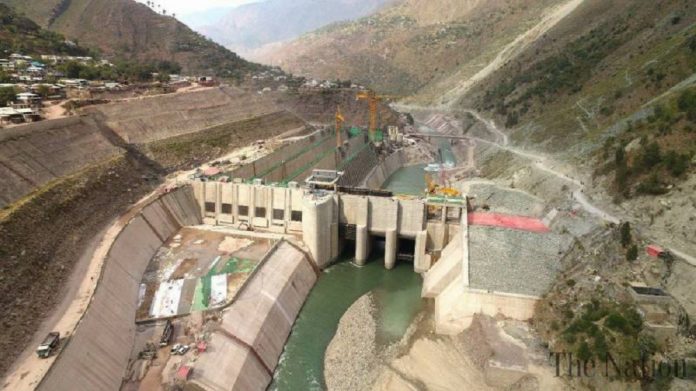The Auditor General of Pakistan (AGP) has criticized the Rs 507 billion Neelum-Jhelum Hydropower Project, declaring it a failure in terms of its planning, execution, and achievement of objectives, Dawn reported.
The audit found that the project, aimed at securing water rights and generating planned electricity, suffered from numerous faults, including tunnel collapses and delays that have raised doubts about the quality of its construction.
The AGP’s performance audit report for 2022-23, which was submitted to the President and Parliament, noted that the report did not even include the major collapse of the headrace tunnel last year, which has kept the project non-operational. Despite the installation of tunnel boring machines (TBMs) intended to accelerate excavation, the project experienced significant delays, mainly due to design changes.
The AGP stated that the project failed to meet the envisaged benefits, including generating the planned 5,150GWh of electricity, securing water rights over the Neelum River, and establishing carbon credit sales under the Clean Development Mechanism (CDM).
Though the first unit was commissioned in 2018, contractors failed to meet contractual obligations and supply essential spare parts. A collapse in the tailrace tunnel (TRT) of the powerhouse shortly after its construction further raised concerns about the quality of the design and work.
The project’s cost skyrocketed from Rs15.012 billion in 1989 to Rs506.808 billion by May 2018, following multiple revisions. The AGP report pointed out that the project experienced an almost eight-year delay, resulting in a cost overrun of Rs334.952 billion. It criticized the inefficient execution, poor resource management, and unresolved contractual issues, which led to significant financial and operational setbacks.
The audit concluded that the Neelum-Jhelum project failed to meet its core objectives. The collapse of the TRT forced the powerhouse to remain shut until March 2023, contributing to electricity generation losses and worsening load shedding. The report emphasized that the project failed to generate the planned electricity and establish water rights over the Neelum River, particularly after Pakistan lost the Kishenganga case in the International Court of Arbitration.
In addition to the financial losses, the AGP highlighted several other issues, including the non-realization of $50.133 million in revenue from the Clean Development Mechanism, environmental damage due to inadequate planning, and delayed or non-executed contractual works.




